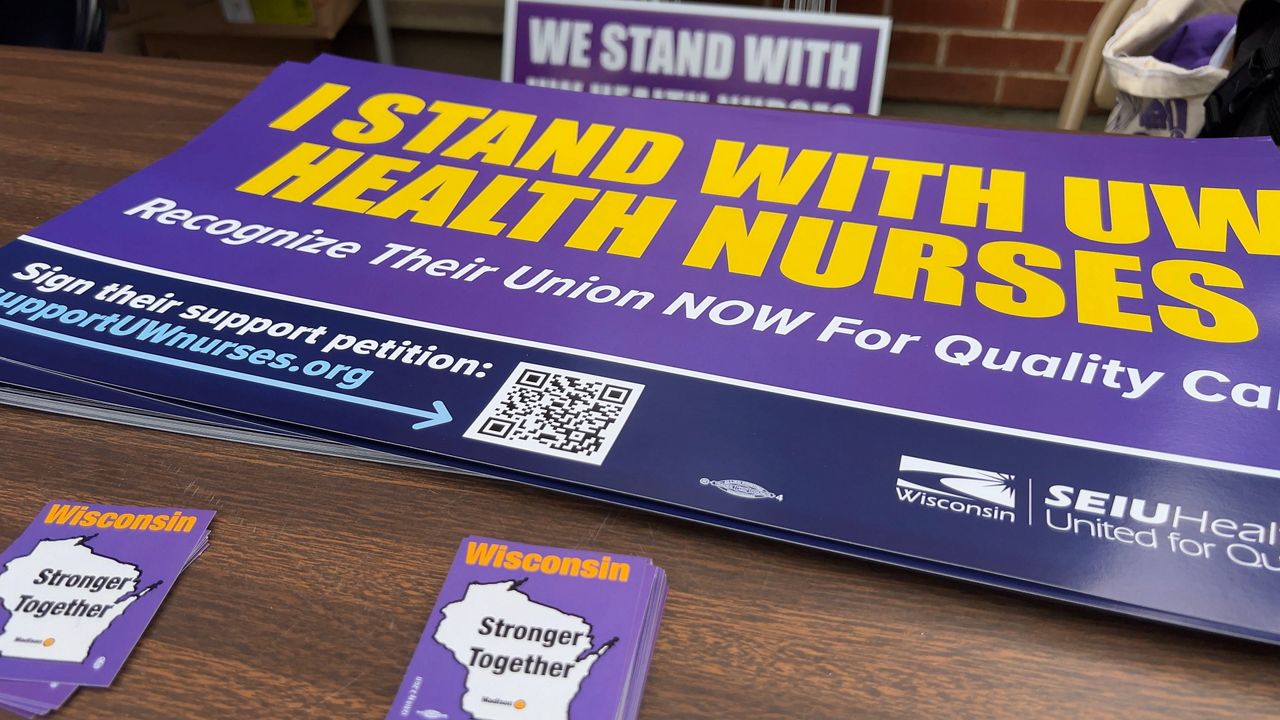MADISON, Wis. — On Monday, UW Health nurses gathered with dozens of elected officials to announce that they will go on strike from Sept. 13 to Sept. 16, citing poor working conditions.
Frontline nurses spoke of issues like burnout, systematic understaffing and staffing cuts that were problems before the pandemic swept across the U.S. but according to the nurses, have only become more prevalent since 2019.
In a statement issued by UW Health last month, the administration said “Our staffing ratios are among the best in the nation. Our nursing turnover rate is approximately half of the national average..”

Becky Schachter, a registered nurse at UW Health, has been working at the company for 24 years and she said this is the worst it has ever been.
“We have been pleading with UW administration for three years to listen to us and were telling them that it is not safe and things need to change,” said Schachter. “The moral is the lowest I have ever seen in the last 24 years.”
In 2014, union contracts for most UW Health workers ended and Schachter said that’s when things started to make a change for the worse.
“Once our contract was up in 2014, they promised us that, ‘Oh you won’t even really notice a difference because we are going to enact shared governance which is going to allow you guys to still have a voice,” said Schachter.
When union contracts ended in 2014, many cited Act 10 legislation that was passed in 2011. UW Health said:
“At this time, the non-partisan Wisconsin Legislative Council and Legislative Reference Bureau, as well as internal legal counsel and external legal counsel, agree that the health system cannot legally collectively bargain under Wisconsin law…”
Schachter said without unionization, UW Health shifted to shared governance and ended up putting more work on the employees and nurses like herself.
“We are asking them to strictly recognize a union and then any bargaining and negotiating will come after that but we just really need our voices back for us, for the patients and for the community,” said Schachter.
In a statement sent to Spectrum News by UW Health, the administration called the worker stoppage “disappointing” and said during this time they will continue to focus on “high-quality care and safety for patients and staff.”
While the strike is set to take place from Sept. 13-16, nurses clarified that if they do not get what they want, the strike could be extended.

As an alternative to striking, UW Health urged the union to petition the state for recognition through traditional channels and said until they know that collective bargaining is not against the law, they will not be taking part in it.
UW Health released the following statement:
“As we approach their stated strike dates, our efforts will be focused on protecting our 700,000 patients from care disruptions and our 16,000 Madison-based providers and staff from threats and intimidation. This strike will be unpleasant for patients and for our staff, but we will get through it and never lose sight of our shared mission to meet the needs of our patients.”



